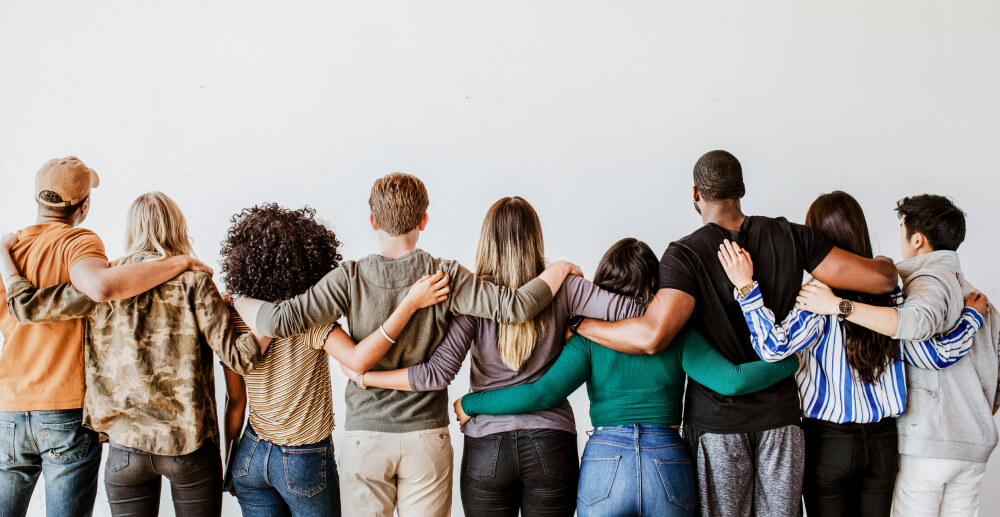Recovery is a choose-your-own adventure novel, and my choices may not look like yours (or anyone else’s).
Once I got some time between myself and my past drugs and drinking, I found the courage and self-interest to speak up for myself about what I needed and what wasn’t serving me in sobriety. This placed me at the wheel of a ship I’d never considered steering before: the ship of my life, floating through the waterways of the universe. I’d been a passive passenger on this ship for so long, cruising and drugging and drinking. I hadn’t realized I could speak up about what I needed in order to get better.
But now I’m here, 14 years later. I haven’t picked up drugs or a drink. And part of that is because I’ve built my own recovery world, my own toolkit full of tools I knew I’d actually use. I placed in this toolkit all the community, medical, and spiritual support I needed. When a strategy, ritual, or routine didn’t feel good to me, I abandoned it and made my own.
Recovery shouldn’t be a one-size-fits-all plan. Here are six reasons why my journey won’t (and shouldn’t) look like anyone else’s:
1. Recovery, like life, is a journey, not a destination.
I’ve gone through phases in recovery. When I first got sober, I soaked up the young people’s recovery community like a sponge. I made lifelong friends, many of whom are still my besties today. Then I got busy and older, and I drifted away. I got sick and searched for meaning. I went to classes at a Buddhist temple. I went to therapy. I took a mindfulness-based stress reduction course. Now, I’m plugged in with 12-step meetings again.
Other people? They take other paths. Other life events. Other journeys.
2. We didn’t all struggle with the same addictions (or addictive behaviors), so we won’t all recover in the same way.
Personally, I cannot drink or use any substance safely. I know that. That’s my own experience and my own choice. Abstinence is what my recovery looks like today. But I know that other people’s recovery might not be abstinence-based. Someone else who has a problem with pain pills or heroin might know they can’t take opioids safely, but they could make different choices about other substances and behaviors. That’s their recovery, and it’s up to them.
3. Cold turkey isn’t the holy grail—recovery is, even if that means incorporating medication.
If I could have quit pain pills cold turkey, I would have. Detoxing off of them taxed my body and brain in ways I’m relieved to never go through again. I tried, many times, to quit cold turkey. But doing it that way, I always, always broke down and used again. When I finally received medication to assist me, I was finally able to stop using and stay stopped. That was my recovery.
The science supports using medication to assist recovery from opioids—from heroin to OxyContin and everything in between. If someone who isn’t able to quit on their own chooses to use evidence-backed medication to help them stop using, to stabilize them, and to reduce their risk of relapse, that’s their recovery. It might not look like yours, or mine, but it’s their path. And it’s one that science backs up.
4. Different people have different co-occurring stuff.
I wish when we put down the drugs, we could ditch all of our other problems along with it. But that’s rarely the case. We often have other stuff going on. Like other addictions or mental health issues (which many of us were drinking or taking drugs to self-medicate in the first place).
All of those other substance use disorders and mental health concerns need treatment, too. Treatment will look different for everyone. I had anxiety, depression, and chronic pain. I still do have all these things, to this day. But now I get medical help for them, and my doctors and I talk about what medications I’m comfortable taking or not taking in sobriety.
5. Introverts and extroverts might have different recovery needs.
I hadn’t even realized I was an introvert until I quit using and drinking. Addiction can twist our ideas of who we are in strange ways. I imagined myself as the life of the party, loving every weekend out. It took me a few years in sobriety to realize I actually loved to rest at home with a book way more.
While introverts tend to recharge with quiet time, socializing defines most of our current recovery world. When I went to an international young people’s conference, I took time to recharge in my hotel room. I confused some people with my inability to keep up with the fervor of connection at the conference 24/7. But that’s okay. Connection can mean different things to different people. It might mean one-on-one time spent getting a coffee with a supportive friend, calling into an online support group, or spending time with someone in recovery just doing our own work in the same place. Of course, if being around people energizes and inspires you, you should make the most of that kind of connection.
6. Different support groups work for different people.
This may be a controversial statement to some, but I love AA. I consider myself an alcoholic, and even though I also used drugs and was an addict (or someone with severe substance use disorder, as my doctor calls it), I go to Alcoholics Anonymous meetings regularly and feel at home in them. I’d love to change the anonymous part, but hey—I still go! I chose AA because they were the 12-step program with the most meetings near me. People in those meetings seemed to be happy and sober long-term. I tried getting sober without a support group or sober social community when I was younger, but I ended up miserable and lonely.
But that was my journey, and it doesn’t have to be yours. If you’re looking for a different type of support group to suit your needs, you’re living in the perfect time to find it—or to make it, if it doesn’t exist yet.
I can’t even list all of the support group options that are out there, but here are a few that I’ve encountered:
- CA (Cocaine Anonymous) is popular in my area (they allow open talk of drugs but they use the AA text instead of the NA text)
- Yoga of 12-Step Recovery is gaining traction all over
- Against the Stream is a Buddhist meditation group
- SMART Recovery is a support group that focuses more on empowerment than spirituality
- Women for Sobriety is a female-founded recovery movement
- Secular Organizations for Sobriety is bringing together secular recovery groups
- Moderation Management offers moderation support for those who aren’t looking for abstinence
- Workit Health recovery groups are just for Workit members and include therapist-moderated or support groups
What if you want support that you aren’t getting? There is no more powerful act of self-care than creating the recovery community you need. If you’re looking for connection with certain people in your area, chances are there are others out there seeking the exact same thing. Use meetup.com or start a new meeting in the fellowship of your choice. Be the recovery you want, for yourself and for others.
The future of recovery from addiction is here. We may not have jetpacks rocketing us to a new spiritual dimension or a button to press for an instant detox. But online meetings are only a keystroke away, and scientists have identified genes that can cause someone to become hooked on tobacco. It’s time to stop judging people for the paths they take on their journeys into recovery.
Recovery is like childhood, in many ways. It’s discovering how to live, who you are, and what works for you. And then doing it, every day.









